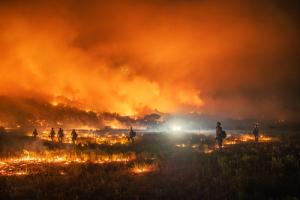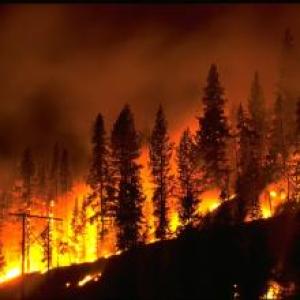Fire
Fire has historically played an important role in shaping forest and grassland ecosystems. Many fire-adapted ecosystems have been altered by social and ecological factors including fire suppression, grazing, and residential development. Understanding the ecological role of fire is essential for balancing the benefits and risks of alternative fire management strategies.
Fire size, severity and frequency are on the rise, as are related fatalities and taxpayer-funded firefighting costs. In an era of rapid change and increasing complexity, fire managers and scientists demand cutting-edge research, tools, and applications.
Building on the Forest Service's legacy of nearly six-decades producing world-class wildfire science, we continually adapt to meet the needs of changing landscapes and the public. Our science is applied globally, and our products and tools are used widely by land managers and decision-makers. Forest Service fire management training programs are also directly informed by fire science research to enhance effectiveness and safety.
The fire science research portfolio includes fire behavior, fuels management and prescribed fire, risk management and social science, safe and effective fire response, and smoke. We invest in wildland fire research and development because fire shapes landscapes and lives.
Data and Tools
-
Interactive Map
Research Teams
-
Laboratory
-
Center or GroupStation
-
Center or GroupStation
-
LaboratoryStation











